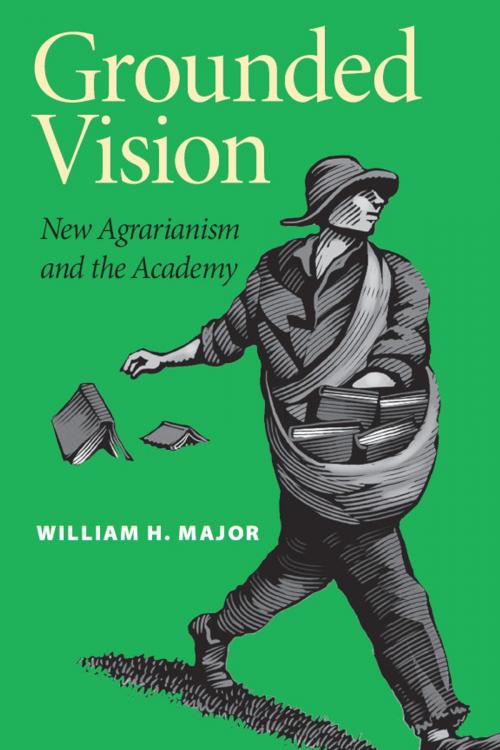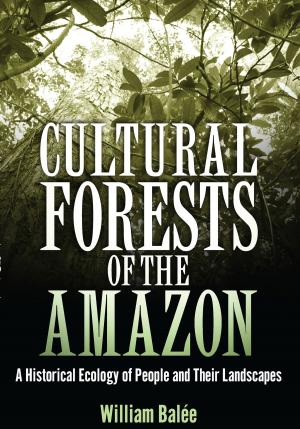Grounded Vision
New Agrarianism and the Academy
Nonfiction, Science & Nature, Technology, Environmental| Author: | William H. Major | ISBN: | 9780817385446 |
| Publisher: | University of Alabama Press | Publication: | April 13, 2011 |
| Imprint: | University Alabama Press | Language: | English |
| Author: | William H. Major |
| ISBN: | 9780817385446 |
| Publisher: | University of Alabama Press |
| Publication: | April 13, 2011 |
| Imprint: | University Alabama Press |
| Language: | English |
Normal0falsefalsefalseMicrosoftInternetExplorer4
Issues of ecology—both as they appear in the works of nature writers and in the works of literary writers for whom place and the land are central issues—have long been of interest to literary critics and have given rise over the last two decades to the now-firmly established field of ecocriticism. At the same time, a new group of ecology advocates has emerged since the 1960s: contemporary agrarian writers such as Wendell Berry, Wes Jackson, and Gene Logsdon draw their basic premises from the Nashville Agrarians of the 1920s and 1930s, and focus strictly on the actual intersections of land and people, striving to enact a healthy coexistence between the two. For agrarians, theory and academic philosophizing often seem inconsequential and even counterproductive.
In Grounded Vision, William Major puts contemporary agrarian thinking into a conciliatory and productive dialogue with academic criticism. He argues that the lack of participation in academic discussions means a loss to both agrarians and academics, since agrarian thought can enrich other ongoing discussions on topics such as ecocriticism, postmodernism, feminism, work studies, and politics—especially in light of the recent upsurge in grassroots cultural and environmental activities critical of modernity, such as the sustainable agriculture and slow food movements.
Major also focuses on agrarianism itself—the valuable relationship it advocates between workers and the land they work, the politics involved in maintaining healthy communities, and the impact of contemporary agrarian writers on the world today. Major thus shows contemporary agrarianism to be a successful instigator of the same social examination for which much academic criticism strives. Major illuminates the ways in which agrarianism’s wide scope and often-unyielding demands are founded in, and work toward, a deep respect and understanding of the connections between the health of the land and its peoples, communities, and economies, and he argues that it raises questions about work, leisure, consumerism, and science to such a degree that it leaves little doubt how fundamental agriculture is to culture.
Normal0falsefalsefalseMicrosoftInternetExplorer4
Issues of ecology—both as they appear in the works of nature writers and in the works of literary writers for whom place and the land are central issues—have long been of interest to literary critics and have given rise over the last two decades to the now-firmly established field of ecocriticism. At the same time, a new group of ecology advocates has emerged since the 1960s: contemporary agrarian writers such as Wendell Berry, Wes Jackson, and Gene Logsdon draw their basic premises from the Nashville Agrarians of the 1920s and 1930s, and focus strictly on the actual intersections of land and people, striving to enact a healthy coexistence between the two. For agrarians, theory and academic philosophizing often seem inconsequential and even counterproductive.
In Grounded Vision, William Major puts contemporary agrarian thinking into a conciliatory and productive dialogue with academic criticism. He argues that the lack of participation in academic discussions means a loss to both agrarians and academics, since agrarian thought can enrich other ongoing discussions on topics such as ecocriticism, postmodernism, feminism, work studies, and politics—especially in light of the recent upsurge in grassroots cultural and environmental activities critical of modernity, such as the sustainable agriculture and slow food movements.
Major also focuses on agrarianism itself—the valuable relationship it advocates between workers and the land they work, the politics involved in maintaining healthy communities, and the impact of contemporary agrarian writers on the world today. Major thus shows contemporary agrarianism to be a successful instigator of the same social examination for which much academic criticism strives. Major illuminates the ways in which agrarianism’s wide scope and often-unyielding demands are founded in, and work toward, a deep respect and understanding of the connections between the health of the land and its peoples, communities, and economies, and he argues that it raises questions about work, leisure, consumerism, and science to such a degree that it leaves little doubt how fundamental agriculture is to culture.















